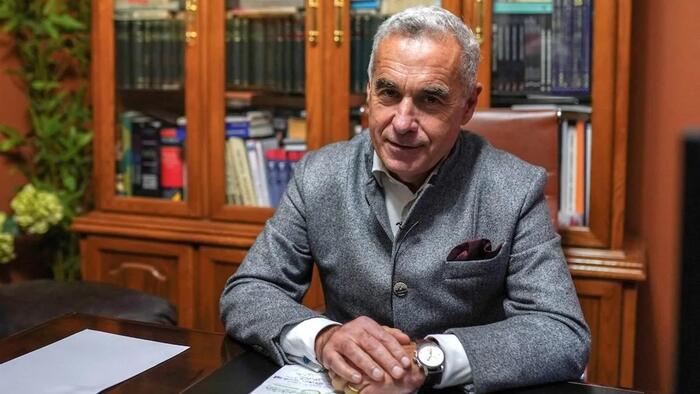In a surprising and unprecedented event, Romania’s Constitutional Court annulled the first round of the presidential election, prompting a complete redo of the electoral process. This decision was made public while voting was still ongoing for the diaspora, raising questions about the integrity and timing of the ruling. The court emphasized the need to ensure legality and correctness within the electoral process, stating that the government must now establish a new date and schedule for the presidential election. This ruling is particularly striking as it represents an extraordinary measure, one that has never occurred in the context of Romanian elections before. The political landscape has been significantly altered by this judgment, which has been viewed as controversial by various observers.
The annulment came after a surprising result in the first round of voting on November 24, where independent candidate Călin Georgescu, described by media sources as “far-right,” emerged unexpectedly at the top. His ascendance to prominence has led political opponents to allege that the election was compromised, pointing fingers at potential Russian interference. The concerns are heightened by the court’s citation of a declassified intelligence report from President Klaus Iohannis, which suggested an orchestrated campaign by Russian entities amplifying Georgescu’s social media presence through various platforms including TikTok. These allegations of foreign meddling, combined with fears over Russia’s outreach, have created a highly charged atmosphere around the election.
Georgescu, despite not having declared any campaign spending, was slated for a runoff against reformist candidate Elena Lasconi of the Save Romania Union party. The allegations surrounding him involve intense scrutiny from several Romanian intelligence agencies, which have assessed the purported Russian involvement in the electoral dynamics. His strong nationalist messaging resonates with a significant portion of the Romanian electorate, which tends to lean towards ultra-conservative views. The country’s high church attendance, associated with the Romanian Orthodox Church, further influences public sentiment; the church’s shared alignment with the Russian Orthodox Church could underpin nationalist leanings among voters.
Interestingly, while accusations of Russian interference grow, Russia has categorically denied any involvement in shaping the election’s outcome. The scenario reflects a broader trend in Eastern European politics where assertions of outside interference are frequently levied against candidates who challenge traditional pro-Western narratives. Russian officials have rebutted claims of any wrongdoing, branding them as absurd hyperbole amidst what they termed a “hysteria” permeating Romanian political discourse. These allegations may suggest a growing division in Romania between pro-European sentiments and an emerging nationalist agenda, potentially diverging from established NATO partnerships.
At an international level, the election results—and especially a possible Georgescu victory—would significantly affect Romania’s position within NATO and the European Union. As a critical member state with strategic military capabilities, Romania hosts important U.S. military installations and acts as a buffer against Russian influence in Eastern Europe, particularly due to its geographical proximity to Ukraine and Crimea. Concerns are mounting that Georgescu’s nationalist and pro-Russian rhetoric may reverse Romania’s strategic alignments, jeopardizing the collective security framework that underpins NATO’s posture in the region, especially given the ongoing conflict in Ukraine.
As the situation unfolds, the public’s reaction to the alleged evidence of Russian interference will play a critical role in future elections. Observers speculate that the Romanian population’s degree of conviction in the claims will determine whether the annulment and subsequent electoral revamping has a lasting impact on the political landscape. Meanwhile, the narrative of Russian interference underscores a recurring theme in contemporary elections across Europe and emphasizes the need for transparency in political campaigning to reassure the electorate amidst fluctuating geopolitical tensions. How the Romanian electorate perceives both Georgescu’s nationalist appeal and the ruling of the Constitutional Court could be pivotal in shaping Romania’s political trajectory and its relations with EU and NATO allies in the years to come.

